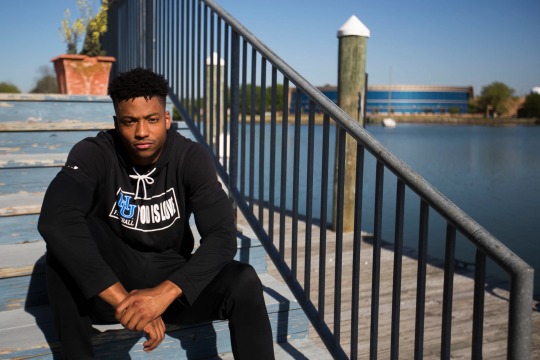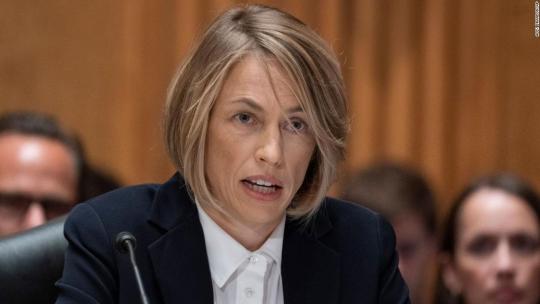#Vanessa Pappas
Photo

Vanessa “V” Pappas
Gender: Non binary (she/they)
Sexuality: Pansexual
DOB: 31 October 1978
Ethnicity: White - Australian
Occupation: TikTok COO, entrepreneur
#Vanessa Pappas#v pappas#pansexuality#lgbt#lgbtq#non binary#pansexual#1978#white#australian#entrepreneur
45 notes
·
View notes
Photo










Openly LGBTQIA+ Celebrities
These are celebrities who have recently come out as LGBTQIA+ or whom I’ve recently learned about or whom I hadn’t mentioned in previous posts of this type. Needless to say, this list is highly arbitrary and incomplete.
Zander Murray (athlete)
Craig Napier (referee)
Eureka O'Hara (drag queen)
V(anessa) Pappas (business person)
Gina Pareño (actress)
Anna Paul (TikTokker)
Byron Perkins (athlete)
Mackenzie Phillips (actress)
Zane Phillips (actor, model)
Nadia Podoroska (athlete)
Continuing the tradition from my old blog (which has been unceremoniously deleted by tumblr without much of an explanation why) I’m doing daily posts during June to celebrate LGBTQIA+ pride by showcasing openly LGBTQIA+ celebrities and various content about or created by LGBTQIA+ people such as music videos, characters on TV shows, movie trailers, …
#lgbtqia+ pride#pride#zander murray#craig napier#eureka o'hara#v pappas#vanessa pappas#gina pareño#anna paul#byron perkins#mackenzie phillips#zane phillips#nadia podoroska
4 notes
·
View notes
Text
Douyin was launched by ByteDance in September 2016, originally under the name A.me, before rebranding to Douyin (抖音) in December 2016. Douyin was developed in 200 days and within a year had 100 million users, with more than one billion videos viewed every day.
While TikTok and Douyin share a similar user interface, the platforms operate separately. Douyin includes an in-video search feature that can search by people's faces for more videos of them, along with other features such as buying, booking hotels, and making geo-tagged reviews.
ByteDance planned on Douyin expanding overseas. The founder of ByteDance, Zhang Yiming, stated that "China is home to only one-fifth of Internet users globally. If we don't expand on a global scale, we are bound to lose to peers eyeing the four-fifths. So, going global is a must."
The app was launched as TikTok in the international market in September 2017. On 23 January 2018, the TikTok app ranked first among free application downloads on app stores in Thailand and other countries. TikTok has been downloaded more than 130 million times in the United States and has reached 2 billion downloads worldwide, according to data from mobile research firm Sensor Tower (those numbers exclude Android users in China).
In the United States, celebrities, including Jimmy Fallon and Tony Hawk, began using the app in 2018. Other celebrities, including Jennifer Lopez, Jessica Alba, Will Smith, and Justin Bieber joined TikTok as well as many others. In January 2019, TikTok allowed creators to embed merchandise sale links into their videos.
On 3 September 2019, TikTok and the U.S. National Football League (NFL) announced a multi-year partnership. The agreement occurred just two days before the NFL's 100th season kick-off at Soldier Field, where TikTok hosted activities for fans in honor of the deal. The partnership entails the launch of an official NFL TikTok account, which is to bring about new marketing opportunities such as sponsored videos and hashtag challenges. In July 2020, TikTok, excluding Douyin, reported close to 800 million monthly active users worldwide after less than four years of existence.
In May 2021, TikTok appointed Shou Zi Chew as their new CEO who assumed the position from interim CEO Vanessa Pappas, following the resignation of Kevin A. Mayer on 27 August 2020. In September 2021, TikTok reported that it had reached 1 billion users. In 2021, TikTok earned $4 billion in advertising revenue.
In October 2022, TikTok was reported to be planning an expansion into the e-commerce market in the US, following the launch of TikTok Shop in the United Kingdom. The company posted job listings for staff for a series of order fulfillment centers in the US and is reportedly planning to start the new live shopping business before the end of the year. The Financial Times reported that TikTok will launch a video gaming channel, but the report was denied in a statement to Digiday, with TikTok instead aiming to be a social hub for the gaming community.
According to data from app analytics group Sensor Tower, advertising on TikTok in the US grew by 11% in March 2023, with companies including Pepsi, DoorDash, Amazon and Apple among the top spenders. According to estimates from research group Insider Intelligence, TikTok is projected to generate $14.15 billion in revenue in 2023, up from $9.89 billion in 2022.
On March 8, 2024, President Joe Biden said he would sign into law a bill forcing ByteDance to divest TikTok within 180 days. The House Energy and Commerce Committee voted unanimously, 50-0, to advance the bill on March 7, 2024. ByteDance launched a congressional lobbying campaign mobilizing TikTok users in response.
On 9 November 2017, TikTok's parent company, ByteDance, spent nearly $1 billion to purchase musical.ly, a startup headquartered in Shanghai with an overseas office in Santa Monica, California, U.S. Musical.ly was a social media video platform that allowed users to create short lip-sync and comedy videos, initially released in August 2014. TikTok merged with musical.ly on 2 August 2018 with existing accounts and data consolidated into one app, keeping the title TikTok. This ended musical.ly and made TikTok a worldwide app, excluding China, since China already had Douyin.
TikTok
0 notes
Text
TikTok Executive comes out as non-binary
A TikTok executive has publicly come out as a non-binary Monday in a message shared on LinkedIn Twitter.
Vanessa Pappas, the social media giant’s chief operating officer, revealed that in their personal lives they “mainly go by V” and have recently started using both her/her and her/her pronouns.
“Because representation is important, I recognize the importance of language in identifying and…

View On WordPress
0 notes
Text
[ad_1]
CNN
—
TikTok CEO Shou Zi Chew will testify at an upcoming hearing before the House Energy and Commerce Committee, a committee spokesperson confirmed to CNN Monday.
Chew will be the sole witness at the hearing, scheduled for March 23. He is expected to testify on TikTok’s privacy and data security practices, its impact on young users, and its “relationship to the Chinese Communist Party,” according to a hearing announcement on the committee’s website.
“We’ve made our concerns clear with TikTok,” said the committee’s chair, Washington Republican Rep. Cathy McMorris Rodgers, in a statement. “It is now time to continue the committee’s efforts to hold Big Tech accountable by bringing TikTok before the committee to provide complete and honest answers for people.”
Chew’s upcoming testimony was first reported by The Wall Street Journal.
“We welcome the opportunity to set the record straight about TikTok, ByteDance, and the commitments we are making to address concerns about U.S. national security before the House Committee on Energy and Commerce,” Brooke Oberwetter, a spokesperson for TikTok, said in a statement. “We hope that by sharing details of our comprehensive plans with the full Committee, Congress can take a more deliberative approach to the issues at hand.”
The high-profile hearing underscores the rising political risk for TikTok as its negotiations with the US government on a national security deal continue to drag on.
US officials have raised concerns that China could use its laws to pressure TikTok or its parent, ByteDance, to hand over US user data that could be used for intelligence or disinformation purposes. Those concerns have prompted the US government to ban TikTok from official devices, and more than half of US states have taken similar measures, according to a CNN analysis.
Chew, who took over as TikTok CEO in April 2021, has largely stayed out of the spotlight at a time when the app he leads can’t seem to avoid it. Members of Congress previously grilled TikTok COO Vanessa Pappas, arguably the public face of the company in the United States, during a Senate hearing last year.
[ad_2]
Source link
0 notes
Text
TikTok's CEO will testify before a congressional committee in March
Shou Zi Chew, the CEO of , will testify before the House Energy and Commerce Committee on March 23rd. Chow will discuss the app’s privacy and data security measures, its impact on kids and ties to China (parent company ByteDance is headquartered in the country). This will be Chew’s first appearance in front of a congressional panel, the committee said. TikTok COO Vanessa Pappas from lawmakers in…
View On WordPress
0 notes
Link
TikTok’s COO, Vanessa Pappas, testified in front of the Senate Homeland Security Committee in 2022 claiming that “non US-based employees, including China-based employees, will only have access to a narrow set of TikTok US user data, such as public videos and comments available to anyone on the TikTok platform, to ensure global interoperability.” Whatever TikTok has in place, the fact is that the CCP in China includes a requirement that every Chinese-owned business must provide user data to the Chinese government, if requested. That left TikTok in an interesting catch-22 position even before the story broke that TikTok’s parent company, Chinese-owned ByteDance, had used TikTok to spy on certain US journalists. ByteDance gained access to personal data and to the IP address of a journalist from the Financial Times because it thought journalists had gained access to sensitive information. This is obviously a serious violation of privacy. Currently, TikTok has been banned from any House of Representatives phones and from government-issued phones across 19 states. TikTok is also under investigation by the Committee for Foreign Investment because of its links to the CCCP. Tiktok is actively attempting to negotiate a US data deal with the Justice Department. However, given the latest news that their parent company has been caught spying on US journalists, whether the deal can be brought to fruition currently isn’t known. In effect, they could either face a complete ban in the US or could be sold into US ownership. Should a US ban come into force, it’s likely that this would be followed by bans in other countries, which don’t look any more kindly on spying than the US does. Tiktok ban: The consequences for marketers Tiktok is a highly popular platform with marketers, and for good reason. It has a large—and increasing—highly responsive audience that marketers love. According to DataReportal, “the United States of America has 140.6 million active TikTok users aged 18 and above.” That’s a lot of users to be missing out on if TikTok is banned, especially as marketers invested more money than ever in the platform in 2022. Not only that, but with an ever-growing number of features and a whole range of tools to analyze audiences with, TikTok does make it easier for marketers to reach the right people with the right content at the right time. If TikTok is banned completely, anyone that’s had all their marketing eggs firmly in the TikTok basket is going to have a very bad time. However, before panic sets in, let’s remember that TikTok isn’t the only game in town. Every marketer still has access to all the other social platforms, many of which also come with large audiences, useful features, and great analytics. What should marketers do now? For now, it’s a waiting game. TikTok is very much still in negotiations with the Justice Department. They are attempting to agree a deal that reassures the US on security concerns and allows them to continue operating as usual. While that leaves things up in the air for marketers right now, marketers can continue about their business on TikTok and make the most of it while they can. However, we do suggest that you make a plan just in case a TikTok ban does come into force in the US: Ensure that you provide links to your website, your contact details, and other social platforms everywhere you can on TikTok. You can then point users to follow you on other platforms so you don’t lose all your followers if TikTok is no longer an option for you.If you’re all in on TikTok with your marketing, then start diversifying and building your audience on different platforms now. You might not find anything changes, but it’s never a good idea to build your whole marketing campaign solely on one platform, especially one that isn’t yours.Do everything you can to encourage followers to sign up to your mailing list. That way, you can keep marketing to them if the platform is removed. This is best practice anyway—the money really is in the list—but it always bears repeating. And certainly, under these circumstances it is a wise move.Don’t panic. The ban may not happen, so don’t abandon your carefully laid TikTok plans for the rest of the year just yet. Let things play out and keep an eye on what’s happening, but for now, act as if it’s business as usual. Should further details come to light and a ban looks increasingly likely, you can always adjust and adapt your TikTok marketing plan to other platforms, such as Instagram Reels and YouTube Shorts. If you’re doing really well on TikTok and driving plenty of traffic and sales, this may seem like the end of the world. But it’s not. Take a breath and make a plan. The other social platforms will still be there to utilize and continue to market to your audience, no matter what happens to TikTok. Do you want to continue to be updated with Marketing best practices? I strongly suggest that you subscribe to The Beat, Rock Content’s interactive newsletter. There, you’ll find all the trends that matter in the Digital Marketing landscape. See you there!
0 notes
Text
TikTok and the Issue of Digital Privacy
By Elizabeth Wolnik, George Mason University Class of 2024
December 18, 2022

Indiana is one of the many states that have begun to file lawsuits against the social media company, TikTok [1]. The app that teens spend hours a day on has been accused by the Indiana’s Attorney General, Todd Rokita of making false claims about the safety of the platform’s “age-appropriate content”. The first lawsuit alleges that TikTok falsely claims it is friendly for users aged 13 to 17, but these users are being shown content that contains drug and alcohol use, nudity, and profanity which the lawsuit claims can negatively affect the behaviors of minors. The second lawsuit alleges that TikTok has been hoarding sensitive and personal information about the citizens of Indiana who use the app. Another claim in this suit states that the company “has deceived those consumers to believe that this information is protected from the Chinese government and Communist Party”. This came after TikTok’s European privacy policy changed to state that it permits individuals outside of Europe, including China, to access user data, but the United States’ privacy policy has not changed. The United States Committee on Foreign Investment, who oversees business deals involving foreign ownership, has spent months negotiating with TikTok on a proposal to settle concerns that Chinese government authorities could gain access to United States citizens’ data on the app [1]. While this proposal is still ongoing, it has not stopped other states from becoming stricter with TikTok regulations.
South Dakota governor Kristi Noem has recently signed an executive order banning TikTok on all state-owned devices [2]. This came after the Pentagon banned TikTok from military-issued smart phones. FBI director, Christopher Wray has told lawmakers that he is “extremely concerned” that China could weaponize the data collected from the TikTok platform due to their history of hacking and obtaining information from United States government organizations and businesses [2]. Due to TikTok’s Chinese ownership through a company called ByteDance and China’s current Communist rule, companies in China are required to comply with requests from the country’s security and intelligence sector to hand over sensitive data [3]. Many state governments in America are realizing that this is a risk they are not willing to take and are therefore taking precautions to prevent this scenario from happening. TikTok spokesperson Jamal Brown and TikTok’s Chief Operating Officer Vanessa Pappas have both commented on the situation and have stated that there is misinformation being spread and that there are protections in place for American users’ data and that Chinese government officials have no access to it. Former diplomat and cybersecurity expert James A. Lewis has stated that TikTok’s national security risk is “easily exaggerated (because) intelligence agencies routinely scrape social media to collect biographical information and do not need ownership of TikTok, or any other social media platform, to do this.” [3].
A recent trend on TikTok has raised concern about collecting biometric identifiers. Biometric identifiers are measurements of personal biological features that are unchangeable, usually someone’s fingerprint or faceprint, but can even include a person’s eye or speech pattern [8]. The trend on TikTok involves using a filter that highlights the users’ irises, which is similar to face recognition and fingerprinting. TikTok’s parent company ByteDance has not answered any questions about why they seem to be collecting this type of information about its users. The state of Illinois has filed a class action lawsuit against TikTok for violating their Biometric Information Privacy Act which protects a citizen’s right to privacy by establishing how companies can collect and use people’s biometric identifiers. ByteDance has vehemently denied these accusations of sharing biometric data with third parties, but still agreed to pay $92 million to the individuals in the class action lawsuit and hired a third-party company to oversee data privacy training for employees for the next three years. Only Illinois, Washington, and Texas have biometric privacy laws and there is currently no federal policy to regulate how companies are supposed to store, sell, or share this type of information [8].
Privacy policies are important when it comes to disclosing practices when it comes to a company’s collection, use, and handling of the personal data of users and is required by law across the world if companies are collecting data that can be used to identify an individual [6]. The kinds of personal data that is personal enough to identify someone includes their email address, first and last name, shipping or billing address, social security number, their birthday, and social media handles and profile images. Anonymous data like IP addresses can also be classified as personally identifiable information if it is used in conjunction with another type of data that results in identifying someone. The Federal Trade Commission has policies in place to regulate data protection for all consumers in the United States [6].
When using social media sites, it is important for users to understand the differences in the privacy policies that come along with the site. TikTok’s privacy policy breaks down what information they collect, how they use this information, and how they involve third parties [4]. TikTok collects information about a user like their age, username, password, email, phone number, in-app messages, user generated content, and payment information. Information TikTok obtains from other sources include social media login information, advertising information on third-party sites, and publicly available information about a user. More invasive measures in their privacy policy include collecting a user’s IP address, time zone setting, other apps and file names on the user’s device, keystroke patterns and rhythms, battery and audio state, and where a user logs in from. Information is even being used about user generated content, by analyzing objects and scenery that appear, the nature of the audio, and the user’s image of their face and body. TikTok also collects Metadata, which describes how, when, where, and by whom a piece of content was created, collected, modified, or formatted. TikTok states that the reason for collecting all of this information is to perform data analyses, customize the user’s advertisements, to enforce terms, conditions, and policies, to detect fraud and other illegal activities, and to inform their algorithms. TikTok also gives a statement in their privacy policy which says that they do not sell user information to third parties, but rather freely share it [4]. While TikTok is stated as being 13+, it is important to note that many children do not understand what kind of personal information is being shared without their knowledge while they are using the app.
Other popular social media sites like Facebook and Instagram share similar features in TikTok’s privacy policy. Facebook and Instagram’s parent company, Meta, states that they collect information about what kind of content users engage with, the messages users send and receive, and the frequency and duration users display on their platforms. Meta also shares this type of information with third parties and utilize user information to test new products and features, troubleshoot, and conduct surveys and research about their social media sites [5]. Meta’s social media site Facebook has displayed a troubling past of security breaches [7]. The Cambridge Analytica breach in 2014 gained access to 50 million users’ private information without their knowledge or permission. This breach provided the Trump campaign with insights into voter attitudes and has been accused of swaying the election. In 2019, 600 million Facebook passwords were exposed, almost 1 billion Facebook records became available on public servers, and 300 million Facebook accounts were found on the Dark Web. The most recent security breach occurred in 2021 when 500 million accounts were leaked that contained information about users’ names, birthdays, locations, and phone numbers with the information still being out there to this day [7]. It is a valid concern for social media users to wonder if the same security breaches could happen with TikTok since both they and Meta share many similar characteristics.
State-wide laws have begun to be implemented as the danger of online privacy has become more prevalent. The California Consumer Privacy Act (CCPA) was the first comprehensive consumer privacy legislation introduced in the United States [10]. It went into effect on January 1, 2020 and created several consumer privacy rights and business requirements with regard to the collection and distribution of personal information. Under this act, consumers are granted the right to know what kinds of personal information is being collected by a business and the right to opt-in and out, or even delete personal information if they so choose. This act also allows the right to initiate a private cause of action for data breaches. The California Privacy Rights Act (CPRA) is an amendment to the CCPA and grants the California Privacy Protection Agency “full administrative power, authority, and jurisdiction to implement and enforce the CCPA”. The CPRA goes into effect on January 1, 2023 and adds the right for consumers to correct inaccurate personal information and the right to limit use and disclosure of personal information. Consequences of violating the CPRA include severe civil penalties and damages [10].
TikTok is currently working on a deal with the Biden administration to ensure that the app is safeguarded in the United States [9]. All American user traffic is now being routed to servers in California instead of TikTok’s own infrastructure in China. TikTok’s CEO Shou Zi Chew said that he hopes to delete all United States data from the company’s servers and solely rely on the storage facility in California and limit access to authorized personnel only. The CEO also stated that no data is shared with Chinese government officials in order to prevent possible requests from Chinese authorities. TikTok has also stated that Beijing has never sought to gain access to Americans’ information through the app [9]. It seems as though TikTok is taking the accusations of users’ personal information very seriously. There will always be people who doubt the company’s efforts to enforce stricter policies, however there are state policies like the CCPA who put consumers’ needs first to ensure their digital privacy.
______________________________________________________________
[1] https://www.cnn.com/2022/12/07/tech/indiana-tiktok-lawsuits/index.html
[2] https://www.forbes.com/sites/petersuciu/2022/12/03/tiktok-banned-on-state-government-devices-in-south-dakota--will-other-states-follow-suit/?sh=436fbc351fe1
[3] https://www.npr.org/2022/12/07/1141338246/tiktok-maryland-ban-cybersecurity-china
[4] https://www.tiktok.com/legal/page/us/privacy-policy/en
[5] https://privacycenter.instagram.com/policy/
[6] https://www.termsfeed.com/blog/privacy-policy-mandatory-law/#:~:text=over%20the%20world.-,Privacy%20Policy%20Required%20in%20the%20United%20States,have%20provisions%20on%20data%20privacy.
[7] https://teampassword.com/blog/facebook-hacks-a-history-of-security-breaches-at-facebook
[8] https://www.aclu.org/news/privacy-technology/new-trends-may-help-tiktok-collect-your-personal-unchangeable-biometric-identifiers
[9] https://www.npr.org/2022/07/01/1109467942/tiktok-china-data-privacy
[10] https://pro.bloomberglaw.com/brief/the-far-reaching-implications-of-the-california-consumer-privacy-act-ccpa/
0 notes
Text
FBI Direktörü Wray, Michigan Üniversitesinde katıldığı bir panelde Çin hükümetinin sosyal medya üzerindeki içerikleri manipüle ettiğini söyledi.Çin’in TikTok üzerinden topladığı verileri casusluk için kullanabileceğine işaret eden Wray, “Tüm veriler, bizimle ortak değerleri paylaşmayan bir hükümetin elinde. Bu hükümet, ABD’nin çıkarlarına hizmet etmiyor. Bu, endişe yaratmalı.” dedi.FBI, daha önce birçok kez TikTok üzerinden toplanan verilerin Çin hükümeti tarafından “kötü niyetli” kullanılabileceğini söylemişti.Öte yandan TikTok Operasyon Şefi Vanessa Pappas, eylülde ABD Senatosunda katıldığı bir oturumda, Çin hükümetinin uygulamanın verilerine hiçbir erişimi olmadığını belirtmişti. (AA)
ve daha fazla aydın haber yazıları okumak için Teknoloji sayfasını ziyaret edebilirsiniz.Kaynak: https://www.sozcu.com.tr/2022/teknoloji/fbi-tiktok-verileri-casusluk-icin-kullanabilir-7514763/
https://rehberaydin.com/fbi-tiktok-verileri-casusluk-icin-kullanabilir/
0 notes
Text
Former NBA CMO Kate Jhaveri Joins TikTok as Global Head of Marketing
Former NBA CMO Kate Jhaveri Joins TikTok as Global Head of Marketing
Former National Basketball Association chief marketing officer Kate Jhaveri joined TikTok as global head of marketing.
Jhaveri will report to chief operating officer Vanessa Pappas and oversee consumer and brand marketing, as well as marketing to content creators, working closely with global head of business marketing Sofia Hernandez.
She left the NBA after three years in August, having overseen…

View On WordPress
0 notes
Text
TikTok desires to place its greatest foot ahead by means of platform transparency
Within the face of looming regulation and public scrutiny, TikTok says its focus stays steadfast on what it describes as “our neighborhood.”
On the Fortune Most Highly effective Ladies Summit on Tuesday, TikTok’s chief working officer Vanessa Pappas spoke on a spread of subjects like knowledge privateness, the corporate’s ties with China, and the addictive traits of an countless scroll. Her reply remained the identical for many points going through the high-flying social media platform — we love our neighborhood.
“We name TikTok the final sunny spot on the web,” Pappas mentioned. “We’re actually upholding that neighborhood, and if that’s what you’re on the lookout for, you’re coming to TikTok.”
In just some quick years, TikTok has develop into one of the crucial widespread social media platforms on the web, with greater than 1 billion customers. Because of ByteDance’s possession of the corporate, a government-affiliated Chinese language web company, TikTok has confronted aggressive strain from the U.S authorities.
The scrutiny is so intense that in 2020, former president Donald Trump tried to outright ban TikTok from app shops. TikTok appears to agree that this geopolitical difficulty is the corporate’s greatest public notion downside, and has even labored exhausting to dodge the tough questions on its affiliation with China. Leaked paperwork uncovered by Gizmodo reveal press speaking factors, and chief amongst them was downplaying the corporate’s reference to China.
When requested on stage about preserving person knowledge out of the fingers of the Chinese language authorities, Pappas provided solely a common reply.
“We’re a extremely scrutinized platform,” she mentioned. that “We now have lots of consideration on our efforts and our practices, we’re actually wanting to make sure that we’re placing one of the best foot ahead. And we do this by means of these efforts and transparency.”
The so-called “sunny” firm has fairly the problem to face on the subject of its public picture. A deal with transparency and its area of interest communities appear to be one of the best ways ahead for now.
“There are different platforms that may have related options, however for us, it at all times comes again to the neighborhood,” Pappas mentioned.
Join the Fortune Options electronic mail record so that you don’t miss our greatest options, unique interviews, and investigations.
Originally published at Irvine News HQ
0 notes
Text
TikTok Broadcasts Adjustments For Politicians Accounts Forward Of Midterms
TikTok Broadcasts Adjustments For Politicians’ Accounts Forward Of Midterms
https://sanjosenewshq.com/tiktok-broadcasts-adjustments-for-politicians-accounts-forward-of-midterms/
TikTok, the Chinese language-owned social media platform, introduced Wednesday that will probably be proscribing monetization and marketing campaign financing options for political accounts as a part of a brand new coverage replace. The app can even require verification for the accounts of governments, politicians and political events within the U.S. till the November midterm elections.
In a publish on the corporate’s web site, Blake Chandlee, TikTok’s president of worldwide enterprise options, stated the modifications are meant to make sure that the short-form video platform “stays a enjoyable, constructive and joyful expertise.”
The platform, which has already banned political promoting, now says it’s going to additionally take away promoting options from accounts belonging to candidates and political events.
Some exceptions will apply, together with for public well being campaigns, like these calling on individuals to get their COVID-19 booster photographs.
“We’ll proceed to permit authorities organizations to promote in restricted circumstances, and they are going to be required to be working with a TikTok consultant,” Chandlee wrote.
The app can even be eradicating entry to “monetization options,” together with e-commerce capabilities, from these accounts.
Chandlee stated the corporate will goal “solicitation for marketing campaign fundraising” within the coming weeks by blocking movies the place candidates and politicians ask for cash, in addition to content material via which a political get together invitations individuals to donate on a marketing campaign web site.
The TikTok government added that the verification requirement for political accounts is a part of a trial the corporate is operating within the U.S. Verified accounts show a blue badge with a examine mark subsequent to their account names on the platform.
“By prohibiting marketing campaign fundraising and limiting entry to our monetization options and verifying accounts, we’re aiming to strike a steadiness between enabling individuals to debate the problems which can be related to their lives whereas additionally defending the inventive, entertaining platform that our neighborhood needs,” Chandlee wrote.
TikTok, which was reportedly probably the most downloaded app through the first quarter of this yr, has lengthy confronted questions over its connections to China and the Chinese language Communist Get together.
Final yr, Beijing acquired a 1% stake and board seat on Tiktok’s mum or dad firm, Bytedance, based on Reuters.
Vanessa Pappas, the corporate’s chief working officer, appeared final week earlier than a Senate listening to about social media’s results on homeland safety. She advised lawmakers that nobody who “makes a strategic choice at this platform” is a CPP member, based on Forbes. She later stated the corporate doesn’t choose workers members based mostly on their political affiliations.
Former President Donald Trump tried to ban TikTok and one other Chinese language-owned app, WeChat, within the U.S. by way of government orders in 2020.
President Joe Biden dropped the orders when he took workplace, based on The Related Press.
via San Jose News HQ https://sanjosenewshq.com
September 23, 2022 at 01:34AM
0 notes
Text
0 notes
Text
COO Vanessa Pappas told senators that TikTok is working on a final deal with CFIUS that satisfies all US national security concerns, but didn't give a timeline (Meghan Bobrowsky/Wall Street Journal)
COO Vanessa Pappas told senators that TikTok is working on a final deal with CFIUS that satisfies all US national security concerns, but didn’t give a timeline (Meghan Bobrowsky/Wall Street Journal)
Meghan Bobrowsky / Wall Street Journal:COO Vanessa Pappas told senators that TikTok is working on a final deal with CFIUS that satisfies all US national security concerns, but didn’t give a timeline — Lawmakers express concern over potential Chinese influence of the popular short-video app — Investigation: How TikTok’s Algorithm Figures Out Your Deepest Desires
(more…)

View On WordPress
0 notes
Text
Is TikTok’s time running out?
Is TikTok’s time running out?
Nick Barclay / The Verge
Ever since TikTok became the most-downloaded consumer app in the world, it’s been an open question when the ByteDance-owned service would face a level of scrutiny commensurate with its status. As of today, it seems clear that moment is now.
At a hearing in front of the US Senate’s Committee on Homeland Security and Governmental Affairs, TikTok COO Vanessa Pappas faced…

View On WordPress
0 notes
Text
TikTok won't commit to stopping US data flows to China
TikTok won’t commit to stopping US data flows to China
Testifying before the Senate Homeland Security Committee, TikTok Chief Operating Officer Vanessa Pappas first sparred with Sen. Rob Portman over details of TikTok’s corporate structure before being confronted — twice — with a specific request.
“Will TikTok commit to cutting off all data and data flows to China, China-based TikTok employees, ByteDance employees, or any other party in China that…

View On WordPress
0 notes